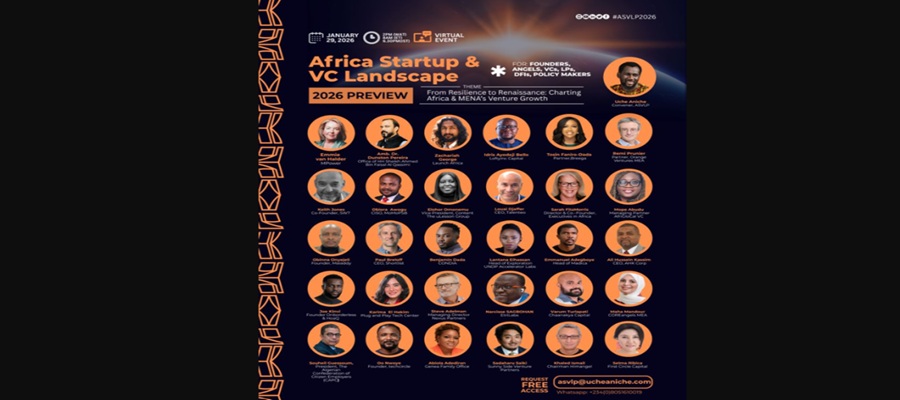Telecom
FG Launches Campaign against Illegal Use of Non-commercial Radio Spectrum

Federal government has begun campaign to address illegal use of non-commercial radio frequency spectrum across the country.

This is coming as the government decried the huge revenue loss from non-commercial radio spectrum revealing that the loss is as a result of non-renewal of spectrum licence fees by the authorised users.
Federal Ministry of Communications and Digital Economy led by Dr. Isa Ibrahim Pantami, minister of Communications and Digital Economy, disclosed this during a two-day public awareness programme on effective approaches to radio spectrum monitoring in Lagos.
Pantami, reiterated the federal government’s commitment in ensuring adequate and legal use of radio spectrum in the country.
Represented by Prof. Sahalu Junaidu, his chief research Adviser, he advised members of the public, especially vendors and service providers of non-commercial radio spectrum, to comply with the regulations of applying and obtaining valid licence to operate the spectrum.
“The federal government currently has five active spectrum monitoring centres in Notth-east, North-west, North-central, South-west and South-south, and has approved additional Monitoring centre in South-east, to be located in Awka, Anambra State,” Pantami said.
Also speaking at the event, Kityobas Binga, director, Radio Monitoring and Survey at the Federal Ministry of Communications and Digital Economy, said that “The federal government is losing several millions of naira to illegal use of non-commercial radio spectrum and to non-renewal of spectrum licence fees by the authorised users.”
He said the campaign in Lagos became necessary, in order to educate users and vendors of non-commercial radio spectrum, on the effective use of the spectrum, and to ensure proper monitoring of harmful interference of radio frequencies. He said the essence of the campaign was also to ensure that adequate level of radiation from approved spectrum equipment is maintained, coupled with the need to stop illegal use of the spectrum that is causing huge revenue loss to the federal government.
Shola Taylor, chief executive officer of Tetconsult, UK and Nigeria, and the former Secretary General of the Commonwealth Telecommunications Organisation (CTO), who presented a paper on ‘Effective Approaches to Radio Frequency Spectrum Monitoring: Opportunities for Stakeholders’, stressed the need for spectrum monitoring, because it is a scarce resource.
According to him, “If spectrum is not monitored and controlled, it can cause harmful interference to other users and it can also lead to abuse by those licensed to provide the service. Monitoring of spectrum has to do with physical visit to spectrum sites by the regulator, and the use of spectrum analyzer to ensure that the spectrum emits the required level of signals approved for that purpose. Monitoring will also help to avoid harmful interference on other users.” He explained that spectrum could be used with long wave or short wave transmitters, provided the guidelines for use of spectrum were diligently followed. He advised spectrum vendors to sell the type-approved spectrum equipment, to avoid harmful frequency interference.
Speaking about the opportunities of spectrum monitoring, Taylor said it could help monitor signals in order to track criminality and illegal use of spectrum.
Taylor listed users of non-commercial radio spectrum to include security services providers like Army, Police, Navy, Airforce, Federal Road Safety Corps (FRSC), as well as emergency services and maritime service providers.
“These particular radio frequency spectrum users fall within the scope of non-commercial radio spectrum that is being regulated by the Ministry of Communications and Digital Economy, while the Nigerian Communications Commission (NCC) and the National Broadcasting Commission (NBC), regulates the commercial radio frequency spectrum that are used for purely commercial purpose and for money generation,” Taylor said.
He therefore advised users of the non-commercial radio frequency spectrum to obtain the necessary licence that would enable them operate transparently.
Stephen Bello, senior consultant at Tetconsult, UK and Nigeria, who delivered a paper on ‘Nigeria Radio Frequency Spectrum Policy and Subsisting Guidelines’, called on spectrum users to always follow the guidelines in purchasing spectrum equipment from licensed equipment vendors. disclosed this during a two-day public awareness programme on effective approaches to radio spectrum monitoring in Lagos
The federal government took the awareness campaign to spectrum vendors in Alaba International Market and its environs in Lagos on the first day of the campaign and had stakeholders’ forum at the Digital Bridge Institute in Oshodi, Lagos, on the second day of the campaign, where it recounted the huge loss of revenue recorded by government, to non-commercial spectrum, which runs into several millions of naira annually.
Telecom
Amazon Axes 16,000 Jobs Worldwide in Major Restructuring Push

Amazon, the world’s largest e-commerce and cloud computing powerhouse, announced plans Wednesday to eliminate 16,000 jobs globally, escalating a restructuring drive first flagged in October with 14,000 earlier cuts.

Amazon
The layoffs, hitting corporate ranks across multiple divisions, aim to slash management layers, boost accountability, and dismantle bureaucracy, Senior Vice President Beth Galetti stated in an internal memo. Despite booming holiday sales and $21 billion quarterly profits on $180 billion revenue, Amazon seeks to redirect resources toward massive artificial intelligence investments amid slower post-pandemic growth and rising costs.
Galetti explained that while some teams finalised October adjustments, others required extended reviews, pushing total reductions toward 30,000—the firm’s largest ever. CEO Andy Jassy, pursuing leaner operations since 2021, has long signalled AI’s role in shrinking white-collar headcount, with corporate staff—about 350,000 of 1.5 million total—bearing the brunt, sparing warehouses.
The move mirrors Big Tech’s broader belt-tightening as firms recalibrate pandemic-era hiring binges against economic headwinds, AI disruption, and policy uncertainties under President Donald Trump. Amazon’s October cuts struck 2,000 in Washington state—including engineers, recruiters, analysts—and 1,500 in California, with fresh impacts undisclosed by location.
Jassy emphasised culture over pure finances in prior notes, blaming rapid expansion for excess layers after workforce doubling during COVID lockdowns fueled online shopping surges. Recent U.S. hiring slowdowns—to 50,000 jobs in December—underscore corporate caution amid AI’s job-shifting potential and tariff worries.
Analysts note the cuts free capital for AI dominance, pitting Amazon against rivals in generative tools despite no immediate financial distress. Ex-workers have decried impersonal processes, often learning via media leaks, highlighting tensions in Earth’s “best employer” shedding talent en masse.
As tech pivots to AI frontiers, Amazon’s aggressive pruning signals a new era: fewer bodies, sharper focus, betting machine smarts eclipse human scale in the post-boom landscape.
Telecom
Police Bust ₦7.7bn Telecom Hack Gang, Seize 400 Laptops in Massive Fraud Swoop

Operatives of the Nigeria Police Force smashed a sophisticated cybercrime ring Wednesday, arresting six suspects accused of hacking a major telecommunications company and looting airtime and mobile data worth a staggering N7.7 billion.

The Force Public Relations Officer, CSP Benjamin Hundeyin, disclosed in a statement that the suspects breached the telecom giant’s core billing and payment systems by compromising internal staff login credentials, enabling them to siphon off vast quantities of airtime and data for illicit resale.
Named in the arrests are Ahmad Bala, Karibu Mohammed Shehu, Umar Habib, Obinna Ananaba, Ibrahim Shehu, and Masa’ud Sa’ad – a mix of northern and southern names hinting at a cross-regional fraud network that preyed on Nigeria’s digital backbone.
Police swooped on the gang’s hideouts in coordinated raids across Kano and Katsina states in October 2025, with a final takedown in the Federal Capital Territory, recovering two mini-plazas masquerading as legitimate retail outlets stocked with over 400 laptops, about 1,000 mobile phones, and a Toyota vehicle.
Investigators also froze substantial sums in the suspects’ bank accounts, tracing the dirty money trail back to the diverted resources that left the unnamed telecom firm reeling from unauthorised activities reported in a desperate petition.
The breach, described by police as a “calculated assault on critical infrastructure,” allowed the hackers to manipulate the company’s systems undetected for months, offloading billions in airtime and data bundles through underground channels and raking in illicit profits.
Hundeyin vowed that the net was widening, with forensic experts combing through digital footprints and financial ledgers to expose any remaining accomplices or beneficiaries in what he called “one of the largest telecom heists in recent Nigerian history.”
Inspector-General of Police, IGP Kayode Adeolu Egbetokun, praised the crack team from the National Cybercrime Centre for their “relentless professionalism,” urging telecom firms to bolster cybersecurity amid a surge in digital predation.
As the suspects cool their heels awaiting arraignment under the Cybercrimes (Prohibition, Prevention) Act, the case underscores Nigeria’s growing battle against tech-savvy fraudsters targeting the N1.7 trillion telecom sector that powers millions of daily transactions.
Industry watchers warn that such breaches erode investor confidence and hike operational costs, ultimately passed onto consumers already grappling with soaring data tariffs in Africa’s most populous nation
Telecom
ASVLP 2026: Africa, MENA VCs Gear Up as Tech Funding Hits $4.1bn Rebound

As Africa and MENA’s startup ecosystems transition from post-correction resilience into a new phase of disciplined growth, the Africa Startup & VC Landscape Preview (ASVLP 2026) will convene leading founders, investors, policymakers, and ecosystem builders on January 29, 2026, for its second annual, agenda-setting virtual forum.

Following a challenging global venture cycle, 2025 marked a notable rebound across the African ecosystem, with startups raising an estimated $3.2–$3.3 billion over the full year.
The recovery was accompanied by significant structural shifts: Kenya emerged as the leading destination among Africa’s “Big Four” markets for the first time, while Nigeria recorded a year-on-year funding decline, reflecting changing investor preferences, macroeconomic pressures, and a broader recalibration toward capital efficiency and sustainability.
Sectorally, fintech remained the most funded vertical, while climate & energy, AI-enabled solutions, healthtech, and infrastructure-adjacent businesses gained increasing attention. Across Africa and MENA, development finance institutions (DFIs) and family offices played a more pronounced role in anchoring funds, deploying catalytic capital, and supporting blended-finance structures, reshaping how early-stage and growth capital is mobilized.
ASVLP 2026 is designed to translate these data points into forward-looking strategy.
The forum will bring together venture capitalists, angel investors, LPs, DFIs, family offices, founders, corporate leaders, and regulators from Africa, MENA, Europe, and North America to assess 2025 outcomes and chart priorities for 2026.
The program will feature keynotes, fireside chats, panels, and deep-dive roundtables, including discussions on:
· The 2026 Africa & MENA FinTech Landscape, focusing on security, profitability, regulation, and growth frontiers
· Emerging Fund Managers, capital formation, and LP alignment
· Talent, operator depth, and institutional capacity as constraints to scale
· Regulatory evolution and cross-border market integration
A major highlight of ASVLP 2026 will be the Final DealRoom Pitch Session, where a curated group of high-potential startups will present to an experienced panel of investors.
• Founders can apply to pitch via: bit.ly/ASVLP-DR-Founders
• Investors seeking DealRoom access can request entry via: bit.ly/ASVLP-DR-Investors
Confirmed speakers for ASVLP 2026 include Khaled Ismail (HIMangel), Idris Ayodeji Bello (LoftyInc Capital), Zachariah George (Launch Africa), Tosin Faniro-Dada (Breega), Selma Ribica (FirstCircle Capital), Maha Mandour (COREangels MEA), Joe Kinvi (Borderless), Remi Prunier (Orange Ventures MEA), Karima El Hakim (Plug and Play Tech Center), Souheil Guessoum (President, The Confederation of Citizen Employers – Algeria (CAPC)), Remi Prunier (Partner, Orange Ventures, MEA), Maha Mandour (COREAngels MEA), Ali Hussein (President, Kenyan FinTech Association), Patrick Okebu (CIO, Interswitch Group) among other leading voices shaping capital, policy, and innovation across the region.
“The conversation has shifted,” said Uche Aniche, Convener of ASVLP. “It’s no longer about whether capital will return to Africa and MENA, but what kind of capital, deployed with what discipline, and in service of which long-term outcomes. ASVLP exists to help the ecosystem make sense of that transition.”
Participation in ASVLP 2026 is free but strictly by invitation.
Interested participants are encouraged to repost the official announcement on LinkedIn and comment #ASVLP2026 to receive a private registration link. They could also email [email protected] and request invite.

 E-Financial3 days ago
E-Financial3 days agoCBN Upgrades Licences of Opay, Moniepoint, Kuda, Palmpay, Paga to National Status
- E-Financial3 days ago
Nigeria’s 9 Top FinTech Firms Valued at $10.6Bn in January 2026

 News3 days ago
News3 days agoTech Executives Double Down on AI, Talent and Adaptive Strategies to Lead in the Intelligence Age

 E-Financial3 days ago
E-Financial3 days agoNIBBS to Boost Financial Inclusion with Offline Payment Solutions

 News3 days ago
News3 days agoDHQ Indicts Brigadier General Abubakar Sadiq, 15 Others in Alleged Coup Plot againt Tinubu

 E-Financial2 days ago
E-Financial2 days agoPayPal Goes Live in Nigeria through Paga

 E-Business3 days ago
E-Business3 days agoFirm Identifies AI as Common Denominator in Entertainment Industry’s 2026 Security Threats

 Broadcasting2 days ago
Broadcasting2 days agoNITDA, NBC Explore Strategic Collaboration on Digital Transformation, Media Regulation



























